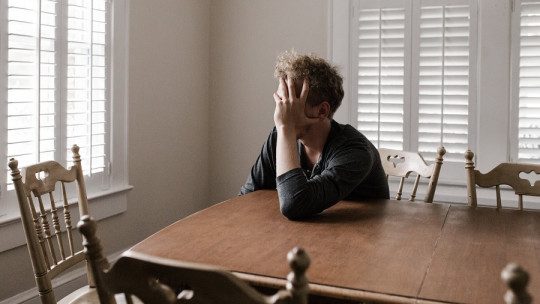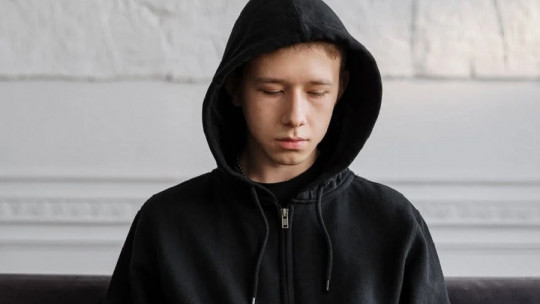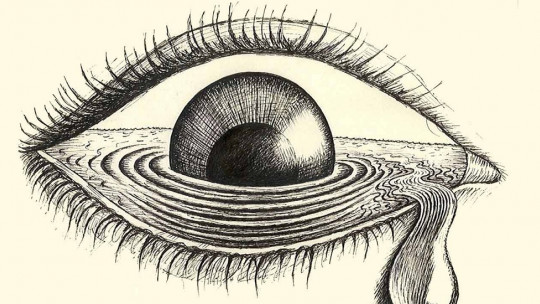
Suicide is one of the main causes of unnatural death in Spain, and Europe is currently the region with the highest suicide rate in the world.
It is a public health problem that affects more people than we think, since many of them secretly experience suicidal ideation due to the stigma linked to mental health problems, or directly live in a context of discrimination or marginality, so they keep their experiences secret. This taboo that surrounds everything related to suicide facilitates the spread of erroneous beliefs about suicidal behavior and in this article we will review the most common ones.
10 Mistaken Beliefs About Suicidal Behavior (And Why They’re Not True)
To learn more about the topic of suicide and understand the suffering that people who experience this type of behavior firsthand go through, below we will review the main erroneous beliefs that exist about suicidal behavior.
1. Self-harm is the same as attempting suicide
Self-harm is a relatively common self-injurious behavior in people who are going through periods of suffering or psychological disorders, such as generalized anxiety, the depressive phase of bipolar disorder, or mood crises in the context of borderline depression disorder. personality.
People who engage in self-harming behavior do not have to intend to kill themselves, but rather relieve or reduce the emotional pain they feel through physical pain.
2. Trying to commit suicide without success is a way of wanting attention
Failed suicide attempts made by a person They are not always ways to ask family and friends for help, far from it. Committing suicide is not an easy process, and many times it involves relatively complex actions, since the person who has been developing suicidal ideation tends to “rehearse” a series of very specific steps to try to suffer as little as possible; Any way of dying is not worth it.
People who go to this extreme of trying to take their own life without success do so because all their other life options, strategies or attempts to move forward have failed and they are left with only this alternative.
3. All suicides are caused by depression
Although it is true that depression is one of the main causes of suicide in the world, there are many other causes that can trigger this fateful consequence.
Some other psychological alterations that can cause suicidal behavior may be anxiety disorders, borderline personality disorder, complicated grief, psychotic breaks, and more.
In addition to that, suicidal behaviors can also be caused by cases of sexual abuse, affective disorder, family or domestic violence, and bullying at school or at work.
4. Suicides always have a mental disorder
There are a wide variety of variables that can facilitate the appearance of suicidal behavior; That is why suicide can affect anyone, whether or not they have a mental disorder, as long as some specific circumstances exist.
As has been indicated, there are many causes that can cause a suicide attempt and these can be related to mental disorders or to accidents, circumstances or exceptional vital phenomena that They do not have to result in a mental alteration that fits the diagnostic criteria of psychopathology.
Some people who experience mental disorders can count on a sufficient support network to get ahead, while, on the contrary, there are people who, without developing mental disorders, are not lucky enough to have this support and end up developing suicidal behaviors.
5. Talking about suicide encourages more people to attempt suicide
There are those who believe that we should not talk about suicide with a person who intends to do so, or that by speaking openly about the subject in mainstream media, series, films and works of fiction in general we will encourage other people to do so.
The reality is totally different: often people with suicidal ideation have no one to talk to about it, due to the social taboo on suicide.
By talking openly about it with people who are attempting suicide, asking about their ideas, intentions or needs, we are not “catching” what has led someone to think about taking their own life; Likewise, creating content that is disseminated by the media does not have the power to increase the suicide rate. if the topic is treated with sensitivity and a romanticized view of this phenomenon is not offered.
6. Those who want to commit suicide never say it
According to scientific studies, Most people with suicidal intentions have verbalized them at some point to someone close to them before taking their own life.
In the vast majority of cases, the person with suicidal intentions expresses it clearly to their closest friends or family, which is why it is of great importance to always listen to them and be aware of them at all times, giving them our support and understanding.
7. The risk of suicide ends when the person feels better
Even if the person feels better or thinks they feel better, they should be cared for through close monitoring by mental health professionals.
It often happens that the person appears more serene if you have definitively made the decision to take your own life, even if you suffer internally.
8. Suicide cannot be prevented
Suicides are multi-causal so they can be prevented in many ways, from the closest support of family and friends to professional medical and psychological coverage.
In addition to that, suicide prevention campaigns by public administrations and states, free access to health services and education and prevention campaigns by professionals in educational centers are also very necessary.
9. Those who commit suicide wanted to die
As indicated, those who commit suicide or attempt it do not want to die, but rather tend to have an ambivalent feeling: on the one hand, they want to stop living their life, but on the other they also want to continue living. In this sense, it is more accurate to consider that it is very difficult for them to continue living, which is why suicide is seen as the only possible solution. The concept of death continues to be perceived as very negative in the vast majority of cases.
10. Medication is the best treatment for suicidal behavior
As is the case with most serious psychological or mental disorders, in the long term a pharmacological intervention will not be as effective as a global psychotherapeutic approach, which intervenes on the causes of the discomfort.
Medication by itself does not eliminate suicidal behavior, it simply temporarily modifies a series of neural circuits and neurotransmitters so that the person stops suffering from intense discomfort for relatively short periods.
Are you looking for professional psychological assistance?
If you want to have the support of a team of mental health professionals, contact us.
In Psychology For We can intervene from both psychotherapy and psychiatry, and we serve people of all ages.








